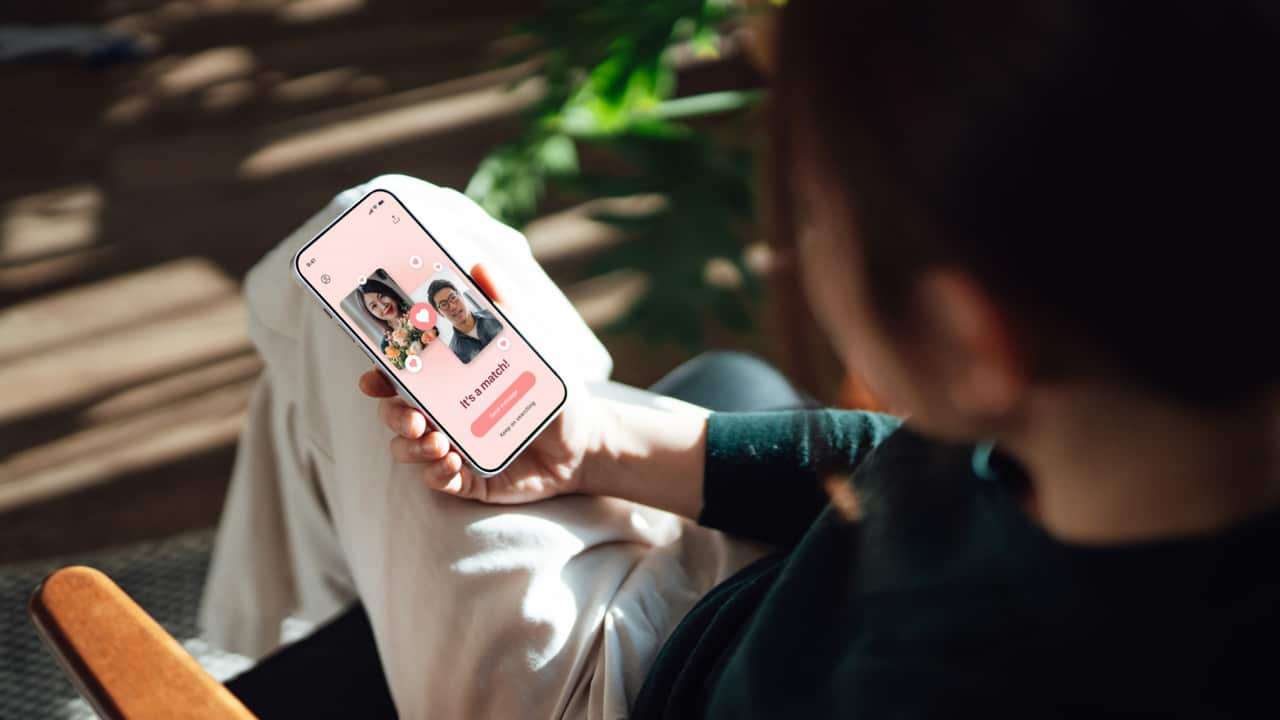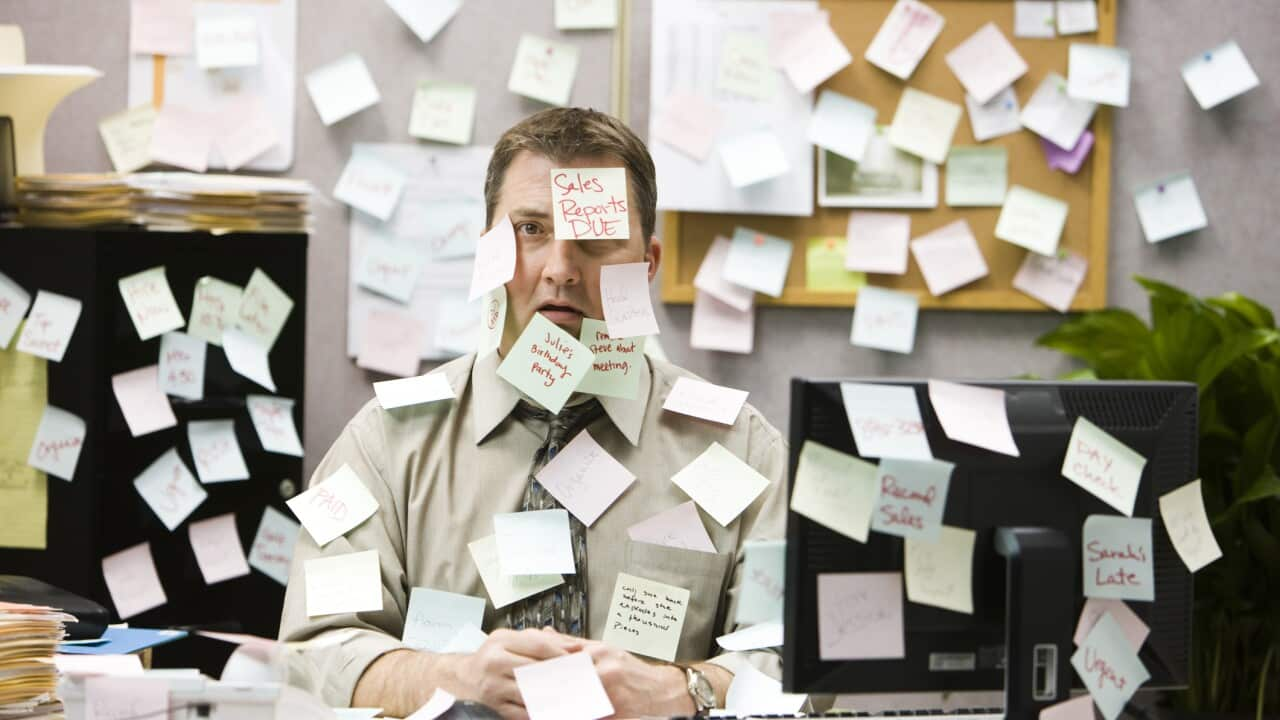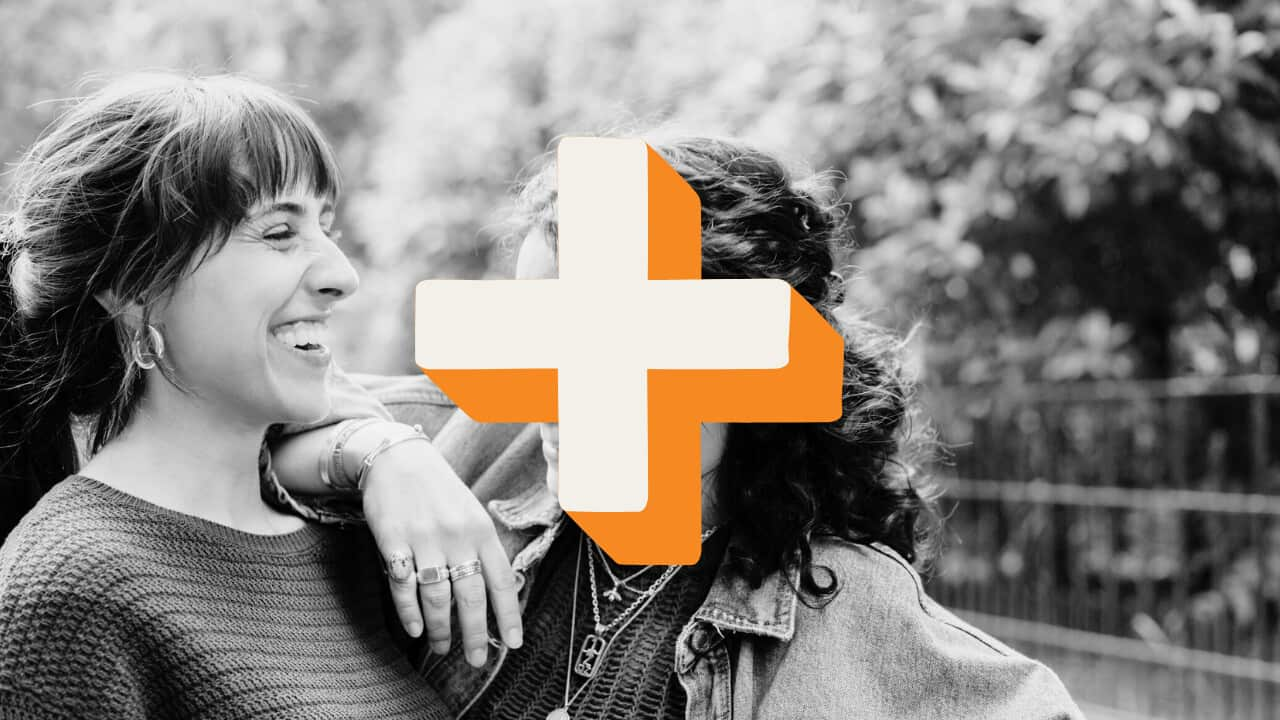SBS Learn English will help you speak, understand and connect in Australia - view all episodes.
This lesson is suitable for intermediate-level learners. After listening, test your knowledge with our quiz.
Learning notes
Examples of phrases you can use when talking about small amounts:
- There are a few presents waiting to be wrapped.
- I have some friends coming over.
- I bought a couple of different flavours.
- There are several questions I want to ask.
Examples of phrases you can use when talking about big amounts:
- I saw loads of bags on the table!
- We’ve got plenty of time.
- She’s got heaps of clothes.
- We’ve got tons of work to do.
- There are dozens of shops in that mall.
Colloquial expressions:
“A few” means a small number, while “quite a few” means more than expected, almost a lot.
Learning Focus:
In English we use different expressions, and sometimes different grammar for things that are countable (that is, we can count them – 1, 2, 3 etc), and things that we think we can’t count (uncountable).
However, it’s not always easy to know which things we can count and which we can’t, and sometimes a word can be used in both ways, as countable and uncountable, depending on how we are thinking about them (or it).
And some phrases can be used with both countable and uncountable things. In the text, we saw that presents, flavours, questions, bags, shops and clothes are all countable:
- There are a few presents
- I bought a couple of different flavours
- There are several questions I’d. like to ask.
- I saw loads of bags on the table!
- There are dozens of shops in that mall.
- She’s got heaps of clothes.
And that food, time and work are uncountable:
- We’ve got loads of food
- We’ve got plenty of time.
- We’ve got tons of work to do.
But you may also have seen these words used as countable nouns, as in examples like:
- I like all the foods that are bad for me!
- I’ve seen that movie three times
- I haven’t read all the works of Shakespeare (yet?)
So for some words, it just depends on the particular meaning we want.
Transcript:
(Note: This is not a word-for-word transcript)
SBS acknowledges the Traditional Custodians of Country and their connections and continuous care for the skies, lands, and waterways throughout Australia.
This is a special episode for us. Know why? It’s our 100th episode! To us...that’s a big number! So we decided that for this episode we will talk about numbers.
I’m Josipa and I’d like you to imagine the city’s buzz fades as you close the door, bags of Christmas shopping in hand. It feels good to be home after all the walking. The thought of Christmas...
Claire
I need to wrap these.
...make you smile? Claire has just got back home. She puts some music on, makes herself a cup of tea, and is ready to start wrapping her presents, when Allan arrives.
Claire
There are a few presents waiting to be wrapped.
Allan
Just a few? I saw loads of bags on the table!
Claire
True, but for roughly half of them I’ll use the same wrapping paper. That will speed things up.
Allan
That’s still plenty to wrap!
There are a lot of English expressions for talking about quantities, and the words themselves are pretty simple. The key is knowing when to use each one. So today, we’re focusing on how much each phrase really means and when to use it.
Let’s begin… We will start small and get bigger.
When talking about small quantities of something, we can use Claire’s phrase when she said,
There are a few presents waiting to be wrapped.
We use ‘a’ when we are referring to a small number of things that you can count – we say countable things. We use it when we want to say that there is a small quantity of whatever it is, but enough to matter.
We can also use the phrase ‘a couple of’, which technically means only two, but can be used in some contexts for ‘about’ two, if we are not exactly sure how many but it is a small number
I bought a couple of different flavours, so you can choose.
When it’s a bit more than ‘a few, we can use the word ‘several’.
There are several questions I’d. like to ask.
But let’s say we want to talk about ‘a lot’ of something. We could use Allan’s example,
I saw loads of bags on the table!
If you say you’ve got loads of something, you mean you have a lot — a big number or amount. It’s a really common, informal way to talk about a quantity that you think is large, or large enough. So you could say,
Please stay for dinner. We’ve got loads of food.
You could also say plenty of, which means pretty much the same thing.
We’ve got plenty of time.
Other casual phrases we can use to mean the same thing are ‘heaps of’ or ‘tons of’.
She’s got heaps of clothes.
We’ve got tons of work to do.
But if you want to stress that you really do have quite a few of whatever it is you can say gazilion of.
There are gazillion of shops in that mall.
Now, remember we said that “a few” refers to a very small, countable number of something. Well, if we want to talk about a slightly larger amount, we can say “quite a few, ”, which actually means the opposite!
There’re quite a few presents on your table.
We often use ‘quite a few’ when we think the number is a little larger than we might expect.
True, but for roughly half of them I’ll use the same wrapping paper.
We can use‘roughly’ to describe an amount, number, or time that is approximate, not exact. It’s often used when you want to give a general idea rather than a precise measurement.
I’ve already spent roughly half of my budget for presents.
And how about you? Do you have a lot of presents to buy at this time of year? Some people buy heaps of presents when they go to visit their families, while others only buy a few. What about you?
Sign up for previews, updates and to provide feedback.
Paul Nicholson and Lily O'Sullivan voiced the characters of Allan and Claire, and Professor Lynda Yates was our educational consultant.












